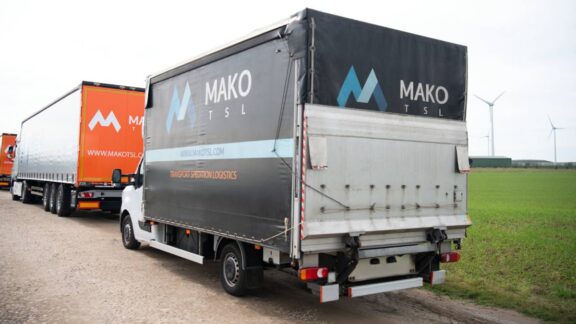Global supply chains are the backbone of the modern economy, with the European Union playing a key role in these systems. The dynamic shifts in trade policies among major global powers, including the introduction of tariffs and duties, have a significant impact on the functioning of complex logistics networks, where international transport plays a pivotal role.
Understanding these changes and adapting to the new realities is essential for maintaining the competitiveness of European enterprises, as well as for the efficient operation of any transport company operating internationally.
Changes in EU Trade Policy and Their Impact on International Transport
As one of the largest economic blocs in the world, the European Union not only implements numerous common regulations that affect transport within Europe but also actively shapes its trade policy. However, recent months have seen turbulence, including escalating trade tensions with other global powers, such as the United States. The U.S. imposition of tariffs on certain European goods, along with potential retaliatory tariffs from the EU, presents new challenges for the international transport sector.
The increase in tariffs and duties leads to higher costs of importing and exporting goods to and from the EU, and also affects the internal EU market. This situation can cause a reshuffling of supply chains, potentially creating new transport flows within the Union. Regions that were previously less cost-effective might now become the most affordable options due to the global context.
Transport companies must factor in the effects of additional customs charges in their planning. While they are not directly affected by tariffs, these can cause delays and significantly extend transport times. This, in turn, may increase the cost of logistics services.
Moreover, uncertainty regarding future trade policy changes makes long-term planning and investment difficult for the TSL (transport-shipping-logistics) sector, including international freight forwarding companies. Clients of transport firms—mainly manufacturing companies—are often unable to plan long-term or define precise goals. This frequently results in halted investments and reduced orders. Ultimately, this lowers demand for transport services, and as is often the case, the transport sector is the first to feel such market changes.
Which Sectors Are Most Vulnerable to Tariff Changes in International Transport?
The sectors most affected by tariff increases are those heavily involved in international trade and reliant on long, complex supply chains supported by international transport. Particularly vulnerable industries include:
- Automotive Industry: Global supply chains for components and finished vehicles make this sector sensitive to trade barriers. According to the Polish Economic Institute, automotive tariffs could result in a 0.12–0.15% decline in Poland’s GDP and a decrease in exports in key sectors.
- Electronics: Electronics manufacturing often depends on the international exchange of components and finished products. A report by the EU Department for Economic Monitoring and Governance indicates that customs tariffs significantly impact this sector by disrupting goods flow and raising costs.
- Agriculture and Food Industry: Tariffs could hit EU exports of agricultural products hard. Among the products proposed by the European Commission for potential retaliatory measures are poultry, beef, selected seafood, nuts, eggs, dairy products, sugar, and vegetables. Tariffs on these goods could significantly affect food prices and the competitiveness of producers.
In all cases, the introduction of tariffs may lead to increased production costs, the need to find alternative markets or suppliers, and ultimately a decline in the competitiveness of European businesses in these sectors. This directly affects the volume and profitability of international transport.
How Can Working with a Transport Company Help Your Business Minimize the Impact of Tariffs?
To mitigate the negative effects of tariffs and duties on their international shipping clients, transport and logistics companies are implementing a range of strategies. These include:
- Route Optimization and Load Consolidation: In response to rising transport costs, including potential customs charges, transport companies are ramping up efforts to optimize routes and consolidate loads. Advanced TMS (Transport Management Systems) are used to plan the most efficient routes, and services such as cabotage help reduce empty runs and fuel costs.
- Supporting Nearshoring: This strategy goes beyond simply relocating production. Transport companies offering specialized services—such as transport of hazardous goods (ADR), oversized cargo, or just-in-time deliveries for new production lines—can find niche markets in this space. Nearshoring, as a long-term trend, will generally increase demand for road transport by reorganizing supply chains and relocating production closer to home. This trend has been evident since the pandemic era.
- Investments in Technology: The use of advanced IT systems and digital platforms streamlines supply chain management, helps monitor changes in customs regulations, and optimizes international transport and freight forwarding processes.
Conclusion
The rise in tariffs and duties poses a significant challenge to European supply chains and the international transport sector. Understanding these changes, working closely with experienced experts, and implementing flexible logistics strategies are key to minimizing the negative effects and maintaining competitiveness in the global market. Transport companies play a fundamental role in this process by providing innovative solutions and supporting businesses in adapting to the new trade landscape in the context of international shipping and logistics.



